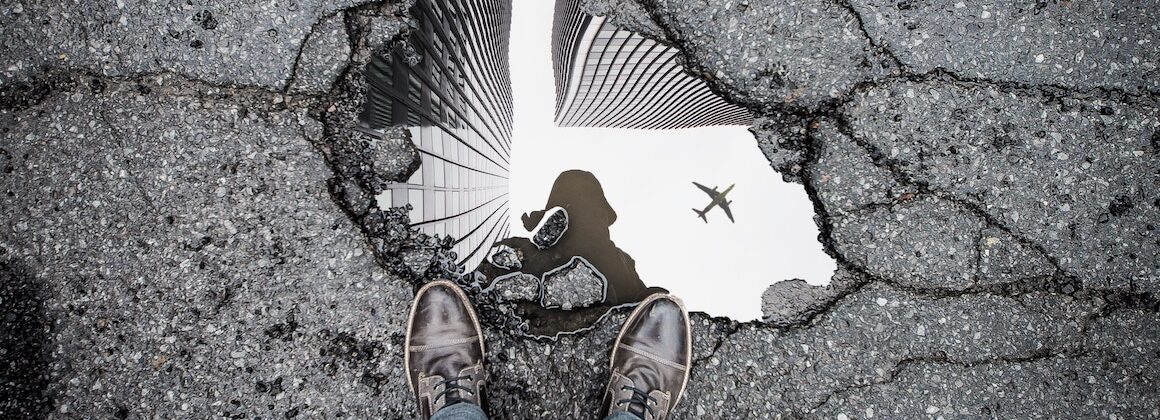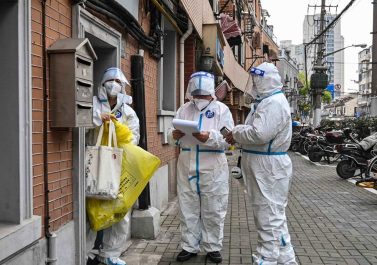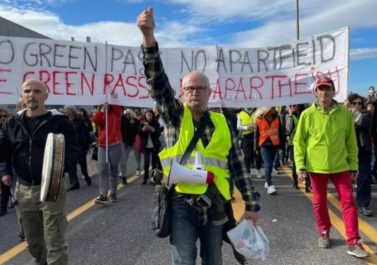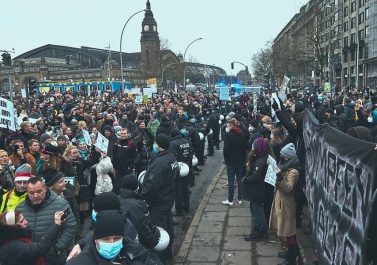I remember various moments over the last decade, when day-to-day conversations at work or at the bus stop or wherever you hang out with fellow workers were stretched beyond the usual. Moments of crisis create cracks, where your otherwise seemingly encapsulated political thoughts and circles, your Marx reading groups or whatever, and the daily grind touch each other. Exhilarating moments. The various crises of the last decade have stripped away layers of the myths that the current system shields itself with.
I remember working as a refuse collector in Hackney, when the 2008 – 2009 crisis kicked in properly. This crisis opened the eyes of many to the global nature of (primarily) the financial system and the actual property relations in the country, the differences even within the working class. The money system was questioned further by blatant contradictions like an increase in homelessness and empty apartments. I remember at the time the discussions in the truck were still mainly on the level of fair or unfair monetary distribution. The Visteon car factory occupation up the road in Enfield was a minor glimpse of what workers could do apart from watching.
When the Brexit (and ‘refugee’) crisis erupted I was working in a 3D printer manufacturing plant in Park Royal. The first thing we discussed was the fact that politicians and the government seemed to be losing their grip over things and unable to run the system even in the interests of the system. Then Brexit revealed how the UK economy is not just financially integrated into the world market, but also through trade and migration. We discussed why things were manufactured in different places around the globe, while assembling parts from around the globe.
I had just started to drive for Tesco when the Grenfell Tower fire happened. Discussions about the systemic nature of ‘accidents’ and their obvious class dimension emerged immediately. So too did the relation between racism and class. Seeing that the state of austerity was not only responsible for the accident, but also unwilling or incapable of getting help to local people, some workmates started to collect donations from the 1,400 people strong workforce. This initiative was quickly reappropriated by the official ‘Tesco Community Champion’.
Getting stuck in traffic on Tesco deliveries because Extinction Rebellion activists blockaded roads in central London in order to protest climate change triggered all sorts of reactions. It opened up some spaces to talk about why certain things are produced and how. But it was the current Corona crisis, which really stripped a further layer from the system’s “that’s just how things are” armour. If the 2008 crash made people question monetary distribution and Brexit the structure of global trade, under the Corona regime people start talking about deep stuff: who works doing what, how and why?
The ‘de-mystifying’ potential of this crisis goes deep. People see that the state is trapped between not wanting to react due to business interests and not being able to react due to the run-down infrastructure due to austerity. Workers can see that in many cases it’s up to workers themselves to protect each other, for example, by stopping non-essential production.
People see that a small section of the population keeps the rest of society ticking over, as so-called ‘key workers’. At this point people can also see that the concept of ‘key workers’ has two different class interests at heart. They can see that the state tries to use the glorification of key workers against them by, for example, enforcing legal changes to make them work longer (like in France) or limiting their right to strike (like in Spain). But the reality of ‘essential work’ also makes blatant that if this essential work was evenly distributed and better organised we all could work two instead of ten hours a day and be fine. Another state reactions such as the sudden massive monetary expenditure and debt cancellation of 13 billion pounds for the NHS, glaringly highlights the political character of a decade of austerity, which in the UK cost over 100,000 people their lives. Money as the measure of wealth seems increasingly absurd. Capitalist decay indeed seems like a prevention of communism. [1]
These moments open up new spaces to discuss the society we live in and the potentials for a better society. This will often happen on an individual level, but it also opens up space for a wider collective debate. In the UK the left tends to promote quick and helpless fixes, introduced by the state, which would cover up the existing fissures. We can’t rely on the fact that ‘everything will be different afterwards’. Instead we should try and re-combine two elements of the communist working class movement: material mutual aid and organisation for struggle, for example, in the form of solidarity networks, and contributions to the debate within the class, like in local workers’ newspapers. We need a new language for all this, which will only come about through having both, working class roots and collective political debates.
For comrades who think similarly, in particular now after the outcome of the Labour candidate election, we recommend reading our new book [2], reflecting on a modest effort of working class organising in west London and participating in one of the upcoming Zoom chats on ‘local organising’: angryworkersworld@gmail.com
[1]
https://libcom.org/history/prevention-communism-radical-chains
[2]
https://pmpress.org.uk/product/class-power-on-zero-hours/



